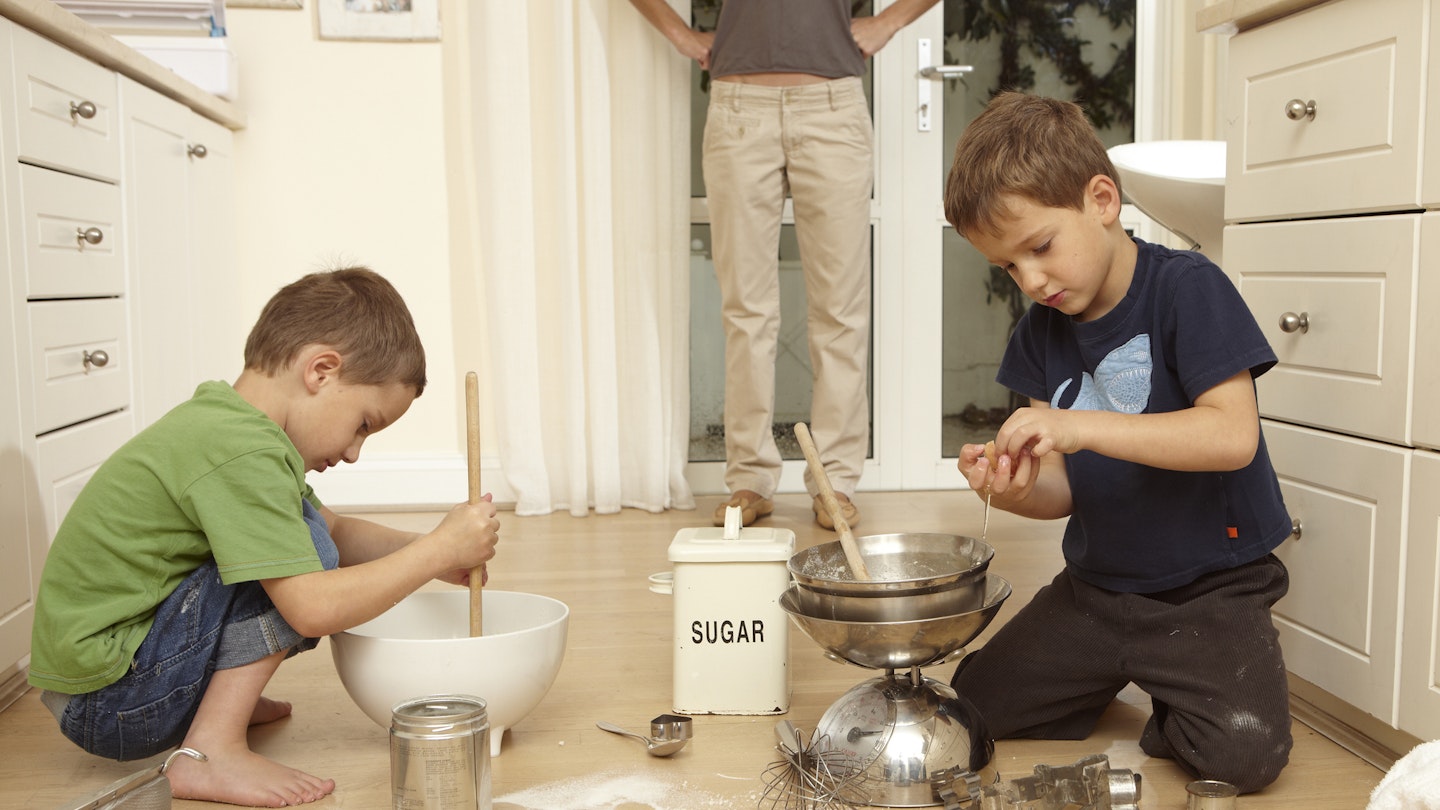When my six-year-old announces that he wants to make himself scrambled eggs for breakfast, a little bit of me groans. But - if we have time - I let him.
Here’s how it goes. He pulls over a stepstool, I get him the eggs and he cracks two into a bowl. Some egg gets on his hand, so he wipes it on the nearest surface or his shirt. He adds pepper and salt and whisks. If I’ve remembered to use a big enough bowl, it mostly stays in there. We then move to the stove, where he cooks the eggs, with me standing close enough to grab his hand if he gets burned. Eggs go all over the stove. Finally, I ladle the eggs onto a plate and he eats.
The kitchen is a disaster area. It’s also taken 25 minutes. And as I chisel dried egg white off the counter, it doesn’t escape me that I could make the eggs myself. It would be much faster and much, much cleaner.
But there is some potential value in providing this kind of freedom, this sliver of independence. And that relates to the job I think we are trying to do at least some of the time in our parenting. Which is: raising adults.
There is plenty of data out there supporting the view that more parental involvement with kids - paying attention to their homework, or making sure they brush their teeth - is associated with positive outcomes for kids. But there is also evidence that too much of this involvement can be problematic, especially as kids age. College students who view their parents as overly involved are at higher risk for mental health issues and anxiety. Anecdotally, university administrators report that more recent generations of students are struggling with independence in college. With waking up on time, completing assignments, getting to class.
How does this relate to my kid and his eggs?
When he goes to college, I want him to be able to handle breakfast. I want him to be able to get himself up and to class on time. And so I’m trying, little by little, to get him there now. You might ask: why not wait? Surely in high school he’d be faster and less messy (maybe?). Is there a reason to introduce independence and responsibility at these ages? People would differ, but I’d argue there is a case for yes.
When kids are smaller, independence is low stakes. If breakfast takes forever and we’re late for school, it’s okay. If I make my ten-year-old responsible for remembering her homework, and she forgets, nothing terrible will happen. But in these moments of forgetting or being late, they’re getting better (I hope!) so this will not happen as much when they’re older. In my mind, introducing responsibility for remembering homework when it’s the final report in a high school class feels like too much. I do not think I could follow through on insisting on independence; the stakes seem too high.
Parenting is all about choices and figuring out what kind of parent you’ll be (and maybe changing your type of parenting over time). Independence isn’t going to be a central value for everyone. For me, it is. And that’s why I’m over here, washing counters and scraping egg from the stove.
